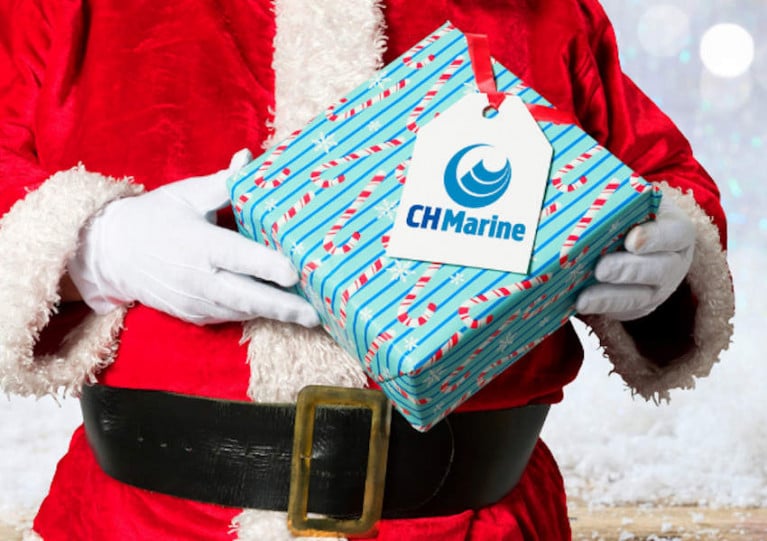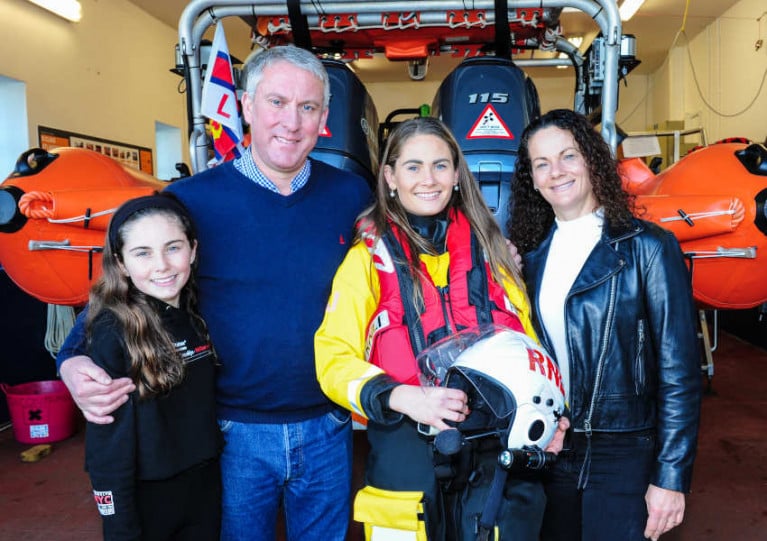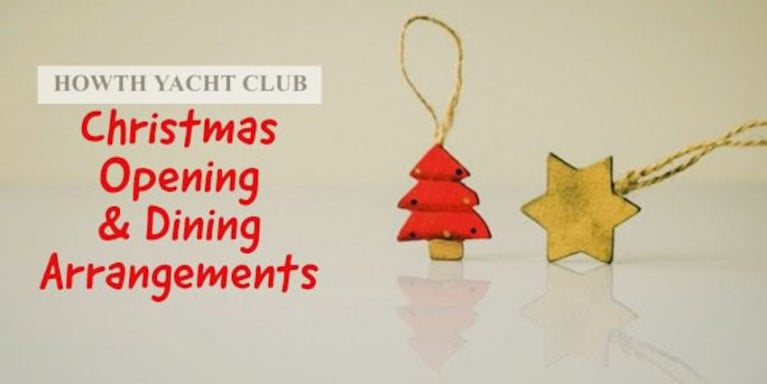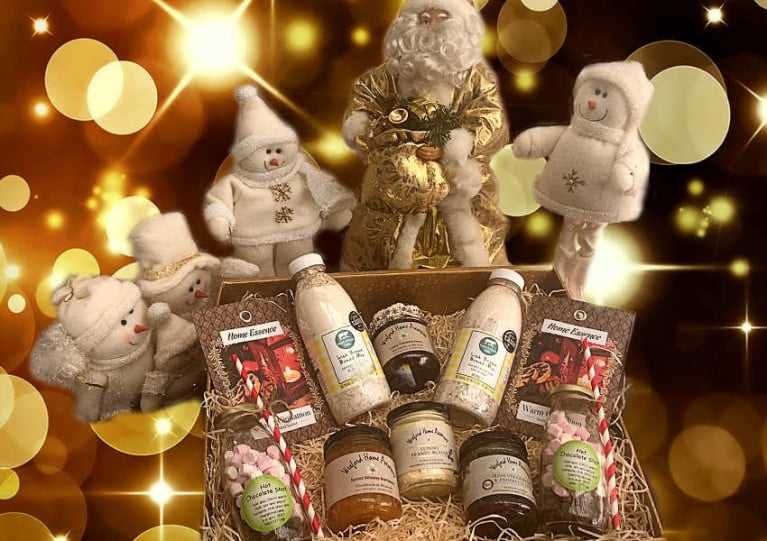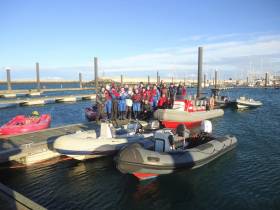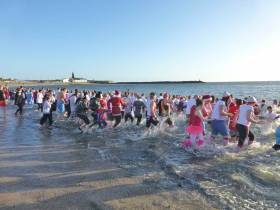Displaying items by tag: Christmas
Great Gift Ideas for Christmas From CH Marine
CH Marine’s digital Christmas brochure for 2023 is out now with a great selection of gift options for everyone across a wide range of products, from gadgets and tools to kayaks and canoes, marine apparel and more.
Plus don’t miss out on some free gift offers on a selection of brands: spend €100 or more on Musto and get a free Musto beanie worth €30; spend €100 or more on Zhik and get a free Zhik cap worth €36.95; spend €70 or more on Rooster and get a free Rooster bottle; and buy Dubarry Ultima boots and get a free pair of Dubarry Kilrush socks.
And if you’re looking for something with a personal touch, order a McWilliam bag online and add an embroidered name for just €12.50 extra — but hurry as ordered must be in by Monday 11 December to be in time for Christmas!
Visit the CH Marine website for more Christmas gift ideas — not to mention free delivery in Ireland and Northern Ireland for orders over €80.
Handmade Crafts and Other Great Christmas Gift Ideas at Galway Hooker SC Pop-Up Shop This Weekend
Galway Hooker Sailing Club will be running its final pop-up shop in Galway city this weekend, 16 and 17 December — just in time for the run-up to Christmas.
Once again the shop is being hosted on the premises of Galway Bay Seafoods at the Docks and is organised run completely by volunteers, selling local crafts.
Some of the items in stock include a great mix of handmade crafts, club merchandise, Galway-themed cards and nautical-themed gift ideas.
Check out their wares this Saturday and Sunday from 10am to 4.30pm and support not only the sailing club but also local businesses.
Fabulous Christmas Gift Ideas From CH Marine
Struggling to find the rights gifts for your loved ones this Christmas? CH Marine has got you covered.
The Cork-based chandlery has so many gift ideas for everyone on your shopping list, and for all budgets!
And if you still can’t decide, buying a gift certificate — for any value up to €1,000 — will make things much easier.
Right now, for the kayaking enthusiast in your life, the Feelfree Juntos and Feelfree Nomad come with free gifts worth more than €111.
Check out CHMarine.com for these and much more besides — with worldwide shipping and free delivery on all orders over €80 to Ireland and Northern Ireland.
CH Marine Has Got You Covered for Gift Ideas This Christmas
At a loss for gift ideas this Christmas? CH Marine has got you covered with nautical treats for all the family!
Whether for him or for her, for the kids or other families, there’s a wide selection of products to choose from — including some at very special Christmas prices.
On a tight budget? CH Marine has made it easy for you to find the right gift whether under €50, under €100 or under €200.
Those looking to spend a little more or even go all out this Christmas are well catered for at CH Marine, which also has a selection of gift ideas tailored for gadget fans.
Still not quite sure what to get to make this Christmas special? CH Marine’s online gift certificates are available for any amount up to €1,000 to make the New Year brighter.
But don’t wait too long, as orders must be placed before Wednesday 16 October to ensure your gifts arrive before Christmas Day!
The families of RNLI lifeboat volunteers have joined an all-Ireland appeal for support after the charity’s usual Christmas fundraisers were cancelled.
As previously reported on Afloat.ie, the charity that saves lives at sea launched its 2020 Christmas appeal as so many traditional community fundraising events such as raft races, open days and sea swims have had to be called off due to coronavirus restrictions.
In Donegal, Lorraine Cassidy’s husband James and sons Nathan (22) and Oisin (21) are all volunteer crew members on Bundoran RNLI’s inshore lifeboat. They know all too well how important it is for crews to have the right lifesaving kit and PPE.
Nathan adds: “RNLI volunteers have had a challenging year but thankfully, with many additional safety measures and procedures in place to ensure our safety, we have remained on call 24/7 throughout the pandemic.
“We have our standard PPE but now also wear masks and gloves and take extra precautions at sea. We know the extra PPE comes at a financial cost to the charity and during a time when fundraising activity has had to be halted.”
Further south are Robert and Colette Foster, whose daughter Caoimhe (20) is a volunteer crew member on Crosshaven RNLI’s inshore lifeboat.
“We are very proud that Caoimhe has been a volunteer lifeboat crew member in Crosshaven for three years now,” her father Robert says. “Our son Cillian (17) is also joining the crew but due to Covid-19, won’t be starting his training until next year.
“Our youngest Clodagh is 12 and having watched Caoimhe’s involvement in the last few years, she is already aspiring to be part of the future crew.”
In East Cork, Mark Nolan has been a volunteer at Youghal RNLI for 23 years, first as a crew member on the station’s inshore lifeboat where he served for 13 years before moving to shore crew. In 2017 he became a deputy launching authority where, among his tasks, he authorises the launch of the station’s lifeboat when the alarm is raised.
Mark’s son Jack (22) followed in his father’s footsteps five years ago when he, too, joined the lifesaving team in Youghal.
“You worry when the pager beeps and you are responsible for authorising the launch of the lifeboat,” Mark says. “While Jack is my son, I would have similar concerns for all crew members who go out on the lifeboat to save others who are in trouble at sea.”
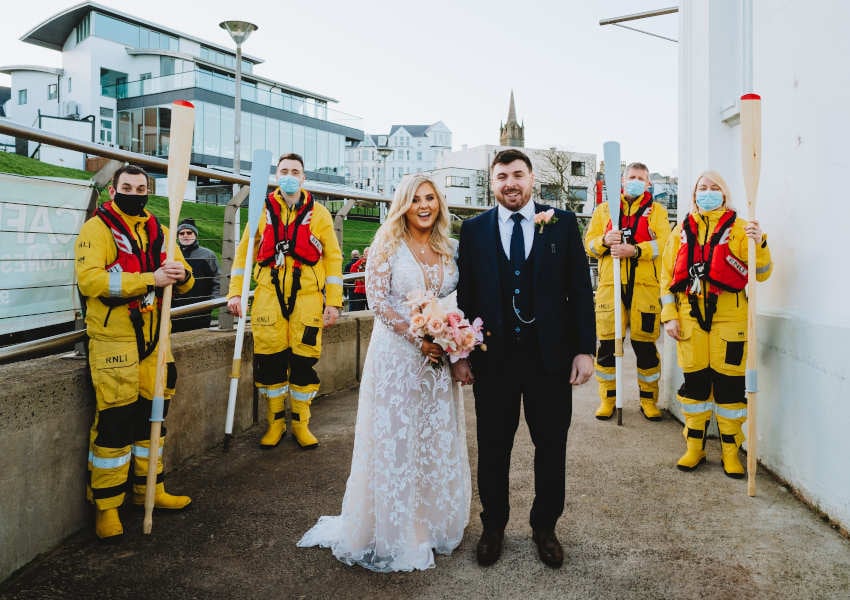 Jason Chambers and his wife Lauren received a special guard of honour from Portrush RNLI after their wedding last week | Photo: Mairéad McDaid/Remain In Light Photography
Jason Chambers and his wife Lauren received a special guard of honour from Portrush RNLI after their wedding last week | Photo: Mairéad McDaid/Remain In Light Photography
For Portrush RNLI relief mechanic Jason Chambers and his wife Lauren (McGee), who is a professional wedding photographer, 2020 has been a year like no other.
The couple who have two children, Tyler (9) and Isla (5), were originally due to get married on 18 April but when Covid-19 restrictions came in shortly after they returned from their hen and stag parties, they were forced to postpone and rethink their plans.
A stressful few months later and amid restrictions changing regularly, the couple eventually got their big day last week.
And much to Jason’s surprise and delight, four fully kitted-out lifeboat crew members representing the station were waiting outside the Arcadia in Portrush following the ceremony to provide a socially distant guard of honour to wish the couple well.
Lauren is also well used to family events being interrupted by the pager. And this Christmas will be no different for the Chambers.
“From the moment I met Jason, the RNLI pager became a part of my life, too. The lifeboat has always been in Jason’s blood and he comes from a long family line who have been involved in helping to save lives at sea for generations.
“It can be difficult seeing Jason leave when the pager goes, and he heads for the lifeboat. I worry about what he might go through when he is out on a shout. Even at Christmas, we know that he might have to drop everything like the other volunteers in Portrush, Red Bay or Larne and run out the door to go and save someone’s life.”
The same goes for Sue and Peter Irwin, longtime volunteers with Donaghadee RNLI, whose son Jack is a volunteer on Bangor RNLI’s inshore lifeboat.
“However, I also know how important the crew member’s role is and how rewarding it is for Jack to make his contribution just as it was for Peter and is for me as a fundraiser,” Sue says.
“The RNLI depends on the goodwill of others to support the work our volunteer crews do and that is why as a family, we would urge people if they can, to give to the Christmas appeal.”
Meanwhile, for one teenager who has helped out where he can at Kilkeel RNLI since he was a child, this year Christmas will be extra special as he will finally be eligible to join the crew on his 17th birthday on Christmas Eve.
Andrew Young’s father Gary has been a RNLI volunteer for the last 32 years. Watching his father work as station mechanic and helm, Andrew was inspired to become a crew member at a young age and is now looking forward to making his own contribution.
“I have been coming to the station with Dad for years and I always loved watching the crew prepare and train between call outs,” Andrew said. “I have helped out where I can but I am really excited now to start my own training to become a crew member and I will look forward to the day that I, too, can help bring someone in difficulty to safety.”
All families share pride in their loved ones’ lifesaving efforts, but they also worry when the pager beeps and they’re called out to save others who are in trouble.
The sense of relief when they help to bring those in difficulty back to safety, but also when they return home safety themselves, is one that they all feel.
And they’re united in declaring that the best Christmas gift they can wish for is any kind of donation, no matter how small, to the RNLI Christmas appeal.
Funds raised will provide the lifesaving kit volunteers so need to continue to help saving lives at sea. For more visit RNLI.org/Xmas
Howth Yacht Club Reopens Doors for Christmas Dining & More
Howth Yacht Club resumed full dining service today, Friday 4 December, and looks forward to welcoming members and guests for lunch and dinner over the festive season.
Besides the usual coffee, scones and seasonal refreshments like mince pies at the bar, the HYC has also introduced a new bar menu and a special Christmas menu. The HYC website has more details on opening hours and availability.
Meanwhile, entries are sill open for the club’s ‘Decorate Your Boat’ competition, with lots of great prizes to be won including a meal with wine or beer to your boat for you and your favourite crew.
Boats must be decorated and on display in time for our judges to view your boats on Friday 18 December, with the winners to be announced on Christmas Eve.
You can also give the gift of choice this Christmas with HYC Gift Vouchers for membership, dining, marina services, official HYC merchandise, sailing lessons and much more besides. Click HERE for more details.
Royal St George Now Taking Orders for Deluxe Christmas Hampers
The Royal St George Yacht Club is now taking orders for its deluxe Christmas hampers.
Members can surprise their loved ones and friends this Christmas with a fantastic gift from their club, featuring a selection of preserves from Wexford Home Preserves, handmade sweet treats and more.
Hampers are €60 (€75 with a bottle of Prosecco) and are available for collection or delivery. To place your order click HERE.
Viking Marine’s Christmas Delivery Deadline Fast Approaching
Viking Marine reminds customers to order online from VikingMarine.ie before this coming Thursday 19 December to ensure delivery before Christmas.
But don’t fret f you miss the postal deadline, as you can still ‘click and collect’ in-store at the Pavilion in Dun Laoghaire until Christmas Eve the following Tuesday.
Shop now in-store and online from Viking Marine’s special 12 Gifts of Christmas range, from VHF radios to dryrobes, Leatherman tools and beautiful, nautical-inspired brassware clocks and bells — the popular clock and barometer pairs have already sold out.
As always, gift vouchers are available for the sailor that has everything.
And free shipping is available on all orders ever €60 to addresses in the Republic of Ireland.
INSS Hosts Christmas Holiday Junior Powerboat Course Next Week
Young sailors can make the most of the Christmas holidays with the Irish National Sailing & Powerboat School’s junior club powerboat course.
The two-day course runs next week on Thursday 27 and Friday 28 December from 10am to 5pm each day, and in a special holiday deal the cost has been reduced to €249 per person. Call 01 2844195 for booking details.
It could make the perfect Christmas gift for the sailor or sailors in your family. For other gift ideas, see the INSS’s range of vouchers for all of its sailing and boating courses.
RNLI Urges Christmas Swimmers To Stay Safe Before They Dive In
#WaterSafety - For many in Ireland a festive dip in the sea is part of a Christmas tradition.
But the RNLI reminds anyone planning for a seaside swim next week that the sea is at its coldest, and potentially most deadly.
If you run straight into cold water, you are more likely to suffer from cold water shock. The best way to avoid this is to wear a wetsuit.
If this isn’t possible, walk into the sea slowly and stay shallow. This will allow your body time to acclimatise gradually.
Cold water shock is a physiological response which causes uncontrollable gasping. This increases the risk of you swallowing water and puts a strain on your heart — in extreme cases it can cause cardiac arrest.
If you feel you this happening to you, fight your instinct to thrash around and swim hard, instead just lie back and float.
The initial shock will pass within 60–90 seconds, and when you have regained control of your breathing, you can then try swimming to safety or calling for help.
This skill will give you a far better chance of staying alive.
If you see someone else in trouble in the water, fight the instinct to go in yourself. Call 999 or 112 and ask for the coastguard.
The RNLI’s drowning prevention campaign, Respect the Water, aims to raise awareness of key hazards like cold water shock, and lifesaving skills like floating.
Find out more about how to float and about cold water shock by visiting RespectTheWater.com.


























